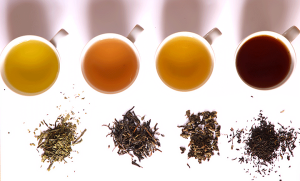Health
Here’s How Tea Works To Protect Immune System From Flu
Flavanoids can be found in many foods like tea, red wine and blueberries. A recent study by scientists at the Washington University School of Medicine in St. Louis showed that breaking down of flavanoids by a particular type of gut microbe can protect severe damage caused by Influenza. “For years, flavonoids have been thought to have protective properties that help regulate the immune system to fight infections,” said first author Ashley L. Steed, MD, PhD to Science Daily.
She also adds, “Flavonoids are common in our diets, so an important implication of our study is that it’s possible flavonoids work with gut microbes to protect us from flu and other viral infections. Obviously, we need to learn more, but our results are intriguing.” In studies conducted prior to this one, it was found that gut microbiome can possibly protect against harmful infulenza infections. Taking cue from that, this study aimed to find out which microbe was responsible for providing protection.
“We were able to identify at least one type of bacteria that uses these dietary compounds to boost interferon, a signaling molecule that aids the immune response. This prevented influenza-related lung damage in the mice. It is this kind of damage that often causes significant complications such as pneumonia in people.” said the senior author Thaddeus S. Stappenbeck, MD, PhD, the Conan Professor of Pathology & Immunology.
The scientists found a microbe in the human gut called Clostridium orbiscindens that helps protect against flu by breaking down flavanoids. Once broken down, a metabolite is produced that enhances interferon signaling which is one of the immune responses to defend the body against the virus. “The metabolite is called desaminotyrosine, otherwise known as DAT,” Steed said. “When we gave DAT to mice and then infected them with influenza, the mice experienced far less lung damage than mice not treated with DAT.” Though the level of infection were same in mice who were given DAT and who were not, the former mice did not suffer much damage.
“The infections were basically the same,” Stappenbeck said. “The microbes and DAT didn’t prevent the flu infection itself; the mice still had the virus. But the DAT kept the immune system from harming the lung tissue.” This the researches say is important as vaccines are not son effective as to prevent the infections. “But with DAT, it may be possible to keep people from getting quite as sick if they do become infected,” said Steed. The researchers also added that it may not be a bad idea to sip on tea and consume flavanoids-rich foods.





















